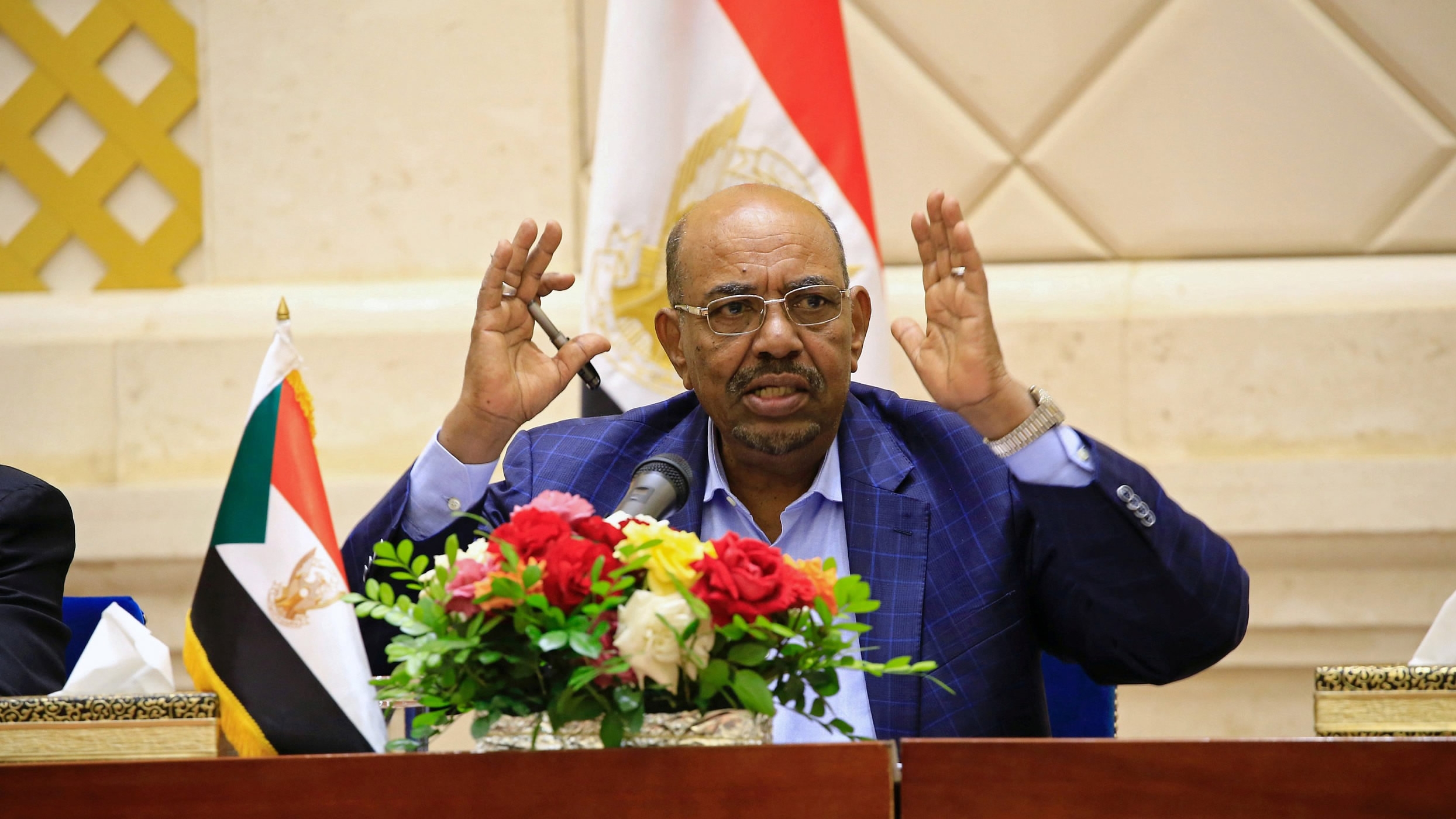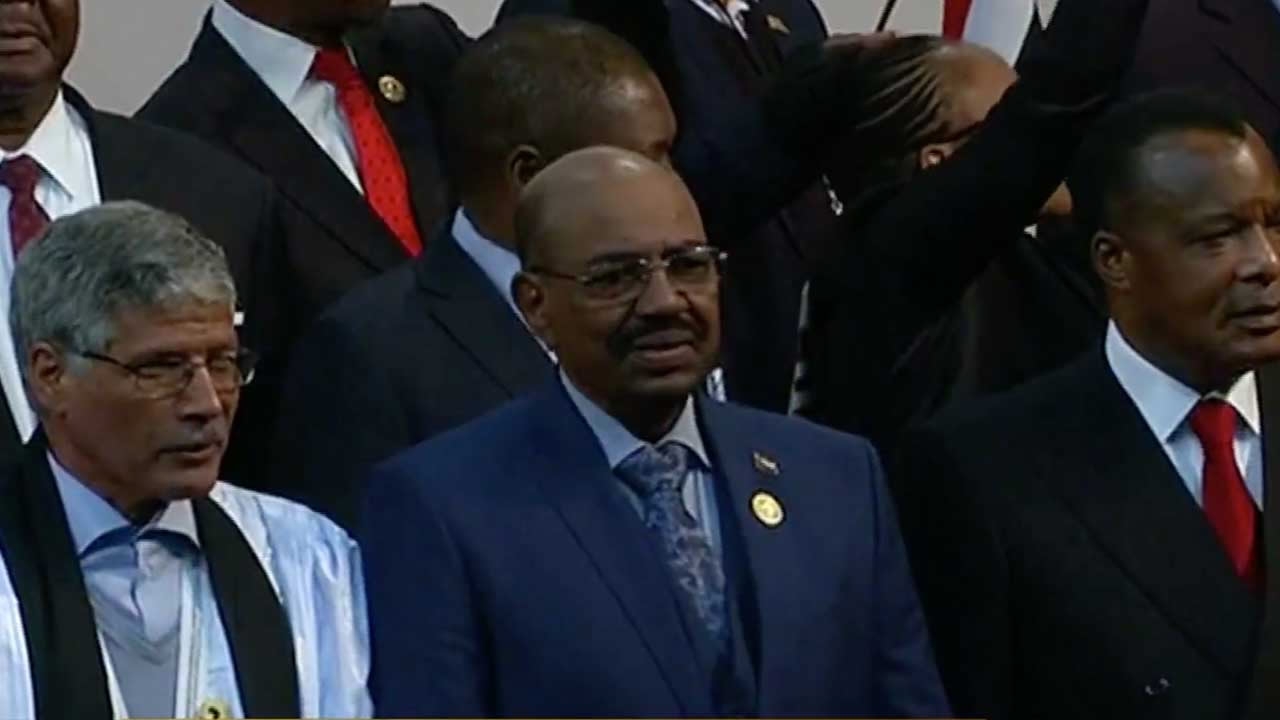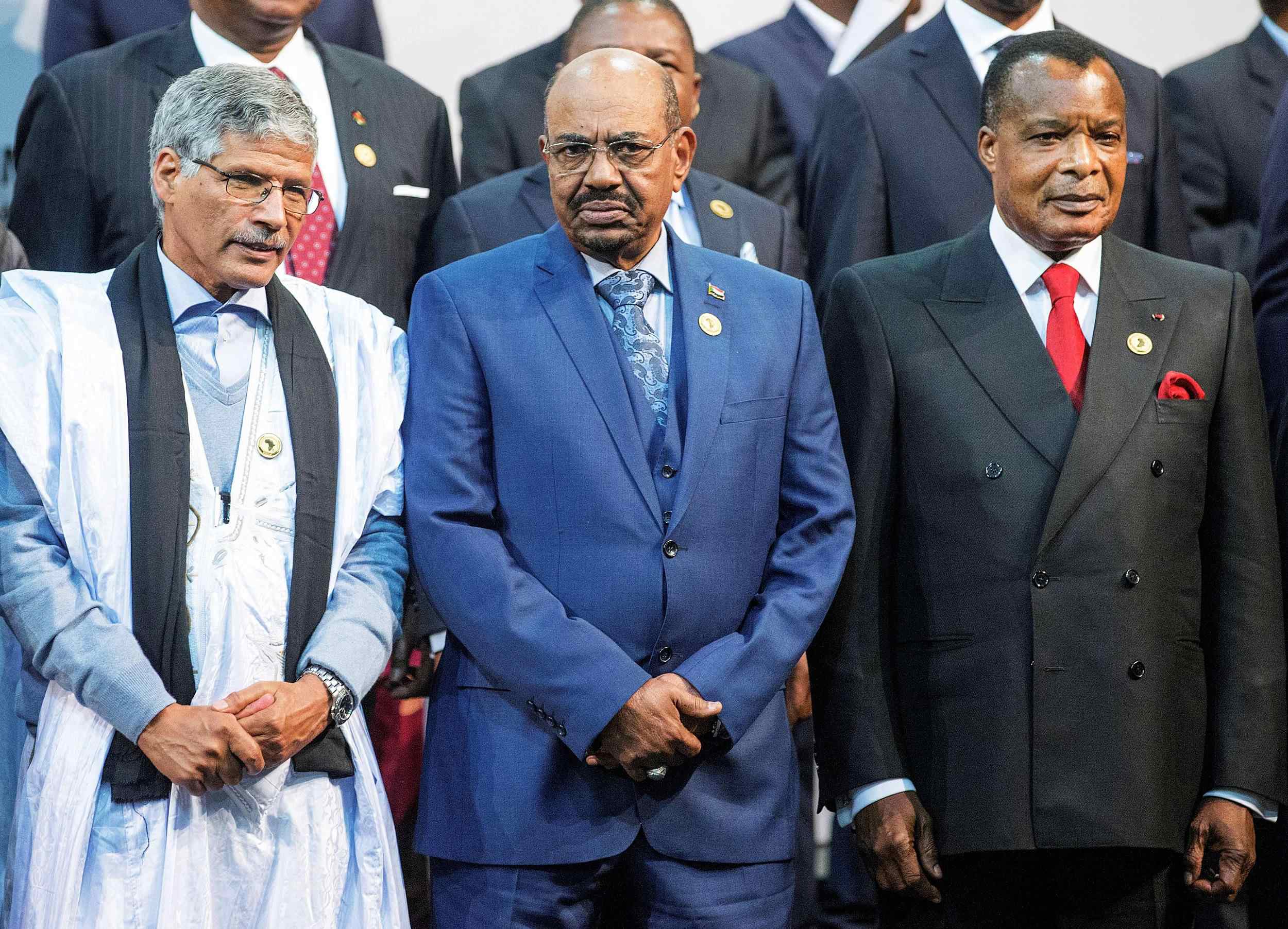
Politics
10:14, 10-Jul-2017
South Africa could leave ICC after row over Sudanese president

By CGTN Africa
South Africa has rebutted criticism from the International Criminal Court (ICC), arguing that it was not obliged to arrest Sudanese President Omar Al-Bashir when he attended the African Union Summit in Johannesburg in 2015, as he had diplomatic immunity.

Several African countries including South Africa have accused the ICC of unfair treatment, threatening to withdraw from the court.
"The ICC targets African leaders but doesn't say enough about those like Blair, like Bush and others who've committed atrocities elsewhere in the world," said Adam Habib, vice chancellor of Wits University in Johannesburg. "However... that does not absolve the African leaders."

Sudanese President Omar al-Bashir (C), Congo's president Denis Sasso-Nguesso (R) and Prime Minister of the Sahrawi Arab Democratic Republic Abdelkader Taleb Oumar (L) posing during a photo call at the 25th African Union Summit in Sandton South Africa on June 14, 2015. /VCG Photo
Sudanese President Omar al-Bashir (C), Congo's president Denis Sasso-Nguesso (R) and Prime Minister of the Sahrawi Arab Democratic Republic Abdelkader Taleb Oumar (L) posing during a photo call at the 25th African Union Summit in Sandton South Africa on June 14, 2015. /VCG Photo
The ICC on Thursday ruled that South Africa should have arrested al-Bashir, and rejected its claim that the president had immunity. The ICC however chose not to refer the case to the United Nations Security Council. South Africa has five days to appeal the ruling and is seeking legal advice.
"They could fight the case. It's unlikely to change the outcome but even if it did, the ICC hasn't agreed on a sanction on South Africa. There's no sanction on South Africa. They've made and noted the issue. If I were South Africa or the South African Government, I would let sleeping dogs lie," said Habib.

Sudanese President Omar al-Bashir watches the joint Sudan and Saudi Arabia air force drill at the Marwa air base, near Meroe some 350 kilometers north of Khartoum, on April 9, 2017. /VCG Photo
Sudanese President Omar al-Bashir watches the joint Sudan and Saudi Arabia air force drill at the Marwa air base, near Meroe some 350 kilometers north of Khartoum, on April 9, 2017. /VCG Photo
South Africa has however warned that should it be forced to accept the ruling, it would be grounds for leaving the ICC immediately.
"It really suggests that South Africa's moving against a number of the co-operative mechanisms it built into it post-apartheid arrangements and is going in a different direction. So, it would cause international actors to look at us quite differently," said Peter Draper of Tutwa Consulting.
Should South Africa leave the ICC, it will raise questions over its stance on human rights which it has championed since becoming a democratic republic over 20 years ago. It may also cause a flurry of other countries on the continent to do the same.

SITEMAP
Copyright © 2018 CGTN. Beijing ICP prepared NO.16065310-3
Copyright © 2018 CGTN. Beijing ICP prepared NO.16065310-3